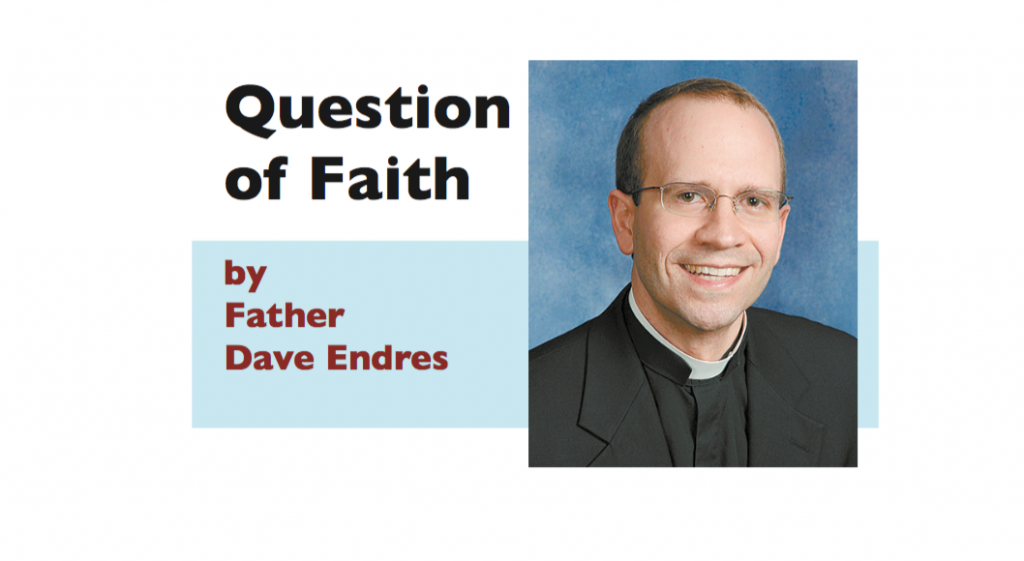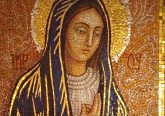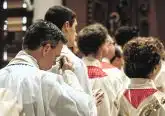Can Non-Christians be Saved?
Q: Is there any hope of salvation for those who are not Catholic or Christian? What is to become of those who do not accept Jesus as their savior (such as those who follow the Jewish or Muslim faiths)?
A; Each year on Good Friday, Catholics pray an extended set of petitions, including prayers for the church, fellow Christians, non-Christians, and even atheists. In praying for non-Christians, the church prays: “Let us pray also for those who do not believe in Christ, that, enlightened by the Holy Spirit, they, too, may enter on the way of salvation.”
While none of us can be sure of our own or anyone’s salvation – whether Christian or not – the church has hope for the salvation of others, including non-Christians. The church does not teach that any individual has been or will be deprived of heaven nor does it teach that all will be saved. But as we do on Good Friday and at other times, we pray for the salvation of our brothers and sisters, Christian and non-Christian.
While acknowledging that good can be found in other religions and that salvation is possible for non-Christians (even the unbaptized), this does not mean that belief in Christ and membership in the church is unimportant. We believe that the church is necessary for salvation, that Christ is the mediator and the way of salvation, and that He Himself explicitly asserted the necessity of faith and baptism.
We affirm a proper understanding of the saying, outside the church there is no salvation (“extra ecclesiam nulla salus”), which dates to the preaching of St. Cyprian in the early church. This statement, without excluding the possibility of salvation for non-Christians, reminds us that all salvation comes from Christ through the church, which is His Body. Christ is the source of salvation for all who are saved – even non-Christians – since Christ died for all and His sacrifice on the Cross makes salvation possible.
George Weigel, in his book, “The Truth of Catholicism” (2001), offers the church’s teaching succinctly through a series of yes-or-no questions:
• Does the Catholic Church teach that God wishes the salvation of all? Yes.
• Does the church teach that salvation was made possible for the world through the cross of Jesus Christ? Yes.
• Does the church believe there is salvation for those who do not believe in Christ? Yes.
• Does the church believe that the salvation of those who do not know Christ is somehow made possible by Christ? Yes.
• Does the church believe that this puts all of those saved in some relationship with the Catholic Church? Yes.
The Catechism describes the teaching in this way, rooting all salvation in Christ and His death: “Since Christ died for all, and since all men are in fact called to one and the same destiny, which is divine, we must hold that the Holy Spirit offers to all the possibility of being made partakers, in a way known to God, of the Paschal mystery. Every man who is ignorant of the Gospel of Christ and of His church but seeks the truth and does the will of God in accordance with his understanding of it, can be saved. It may be supposed that such persons would have desired baptism explicitly if they had known its necessity” (Catechism, 1260).
At times, the church is ridiculed for its narrowness, but its understanding of salvation is broad, allowing for the hope that non-Christians are saved without denying the reason for Jesus coming among us: to set us free from our sins and invite us into eternal life.
Father Endres is dean of Mount St. Mary’s Seminary of the West and The Athenaeum of Ohio. Send your question of faith to [email protected].














